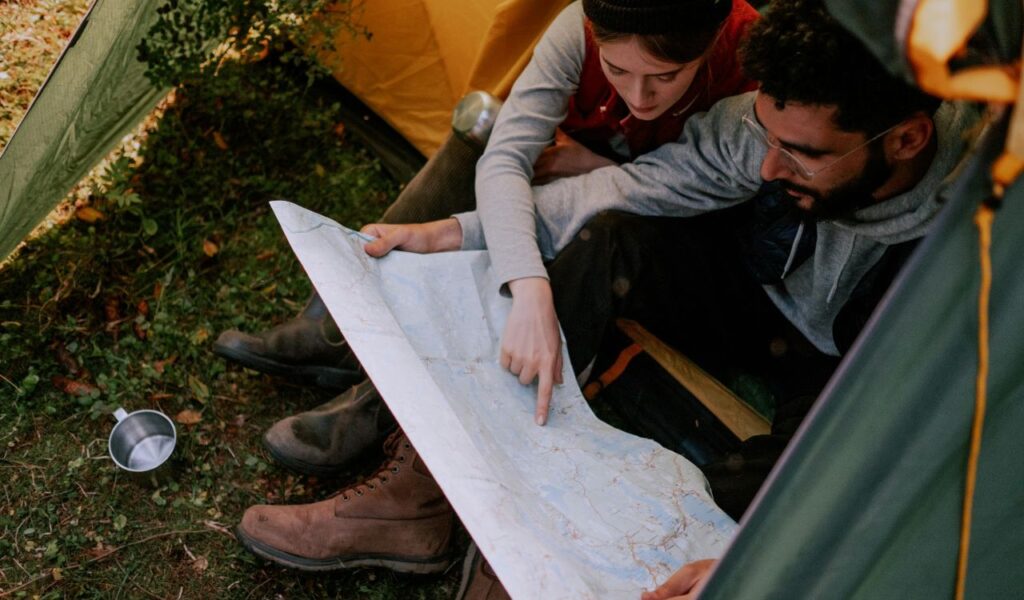We may earn money or products from the companies mentioned in this post. This means if you click on the link and purchase the item, I will receive a small commission at no extra cost to you ... you're just helping re-supply our family's travel fund.

Traveling together is exciting, but sharing expenses can sometimes be tricky. The key to keeping things fair and stress-free is having a plan before you hit the road. By setting clear expectations and using the right tools, couples can avoid misunderstandings, save money, and focus on making memories. These 10 smart strategies will help you split travel costs fairly while keeping your trip enjoyable and drama-free.
Agree On A Splitting Method

Before booking anything, decide how you will divide expenses. Some couples prefer an even 50/50 split, while others choose to split based on income percentages to keep things fair. Talk openly about what works best for both of you and commit to that method for the entire trip. A clear agreement up front avoids confusion later and ensures both partners feel the arrangement is balanced.
Use Expense-Splitting Apps

Instead of trying to remember who paid for what, use apps like Splitwise or Tricount to track costs as you go. These tools let you log expenses in real time and automatically calculate who owes whom. This removes the need for awkward reminders and keeps everything transparent. Both partners can see the shared costs, making it easier to settle up fairly without disputes or forgotten payments.
Communicate Openly

Money can be a sensitive topic, so it is important to talk about it openly and without judgment. Discuss your spending habits, comfort levels, and any concerns before the trip. Check in regularly during the journey to make sure you are both on the same page. Honest communication prevents misunderstandings and ensures neither partner feels pressured into spending beyond their means.
Set Shared Financial Goals

Agreeing on a common goal for your trip helps align spending decisions. Whether you want to splurge on a luxury hotel, focus on budget-friendly experiences, or save for a future getaway, having shared priorities keeps you both working toward the same outcome. This also makes it easier to compromise, knowing you are both aiming for the same travel experience.
Book In Advance

Booking accommodations, transportation, and activities early often means better deals and more availability. Planning ahead also makes it easier to split costs fairly since you can divide expenses before the trip even starts. This helps avoid last-minute price hikes and prevents one partner from unexpectedly covering a big expense on their own. Advance booking also reduces financial stress.
Consider A Joint Account

If you travel frequently together, opening a joint account or using a shared prepaid card can make splitting costs easier. Both partners contribute an agreed amount before the trip, and all shared expenses are paid from this account. This way, you do not have to constantly calculate who owes what, and you keep personal spending separate from trip-related costs.
Track Spending

Even with a splitting method in place, tracking your spending helps you stay within budget. Use a budgeting app, a simple spreadsheet, or even a travel notebook to record every shared expense. Seeing the totals in real time can help you spot overspending early and adjust plans if necessary. It also keeps both partners accountable and informed throughout the trip.
Negotiate And Split Discounts

Look for opportunities to save money on your travels. Whether it is a group discount on tours, a bundled deal on flights and hotels, or a special promotion, these savings can be split between you. Negotiating or searching for offers together turns saving money into a shared effort, making both partners more invested in keeping costs down while still enjoying the trip.
Stay Flexible

Even with the best planning, unexpected expenses can arise. Be prepared to adjust your budget or spending plan if needed. If one partner covers an unplanned cost, make sure it is fairly balanced later. Flexibility keeps the trip running smoothly and prevents small money issues from turning into bigger disagreements. The goal is to enjoy the journey, not stress over every dollar.
Include Ancillary Costs

When budgeting for your trip, do not forget smaller but important expenses like airport parking, baggage fees, travel insurance, or currency exchange charges. These costs can add up quickly if overlooked. Including them in your shared budget ensures both partners are prepared and no one is surprised by extra charges. This creates a more accurate and fair financial plan.